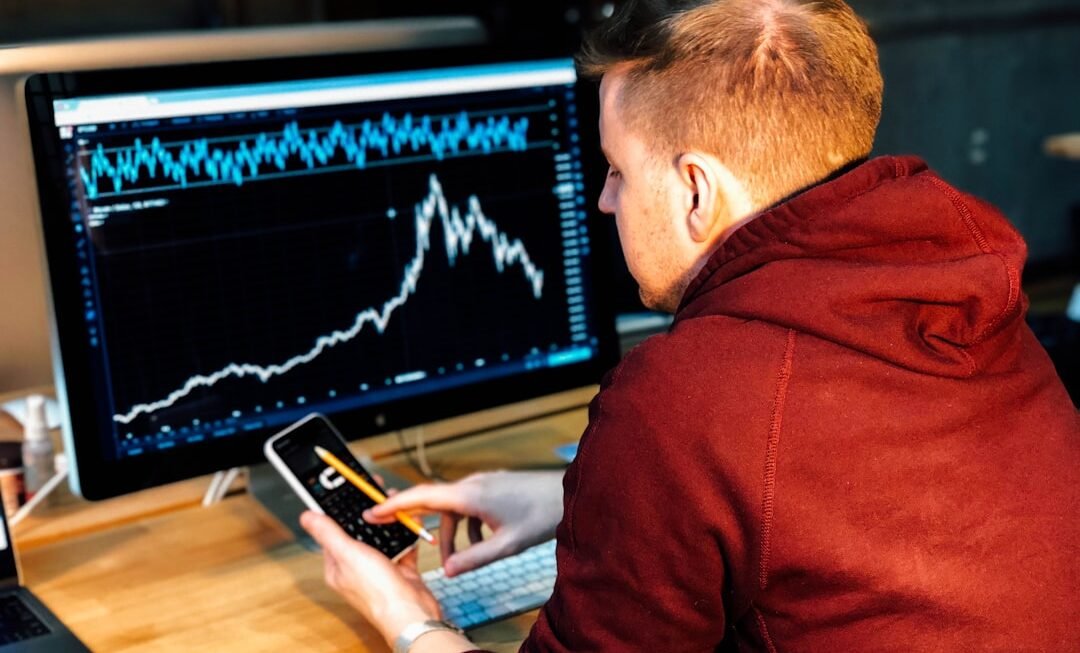The advent of artificial intelligence (AI) has revolutionized numerous sectors, and finance is no exception. AI-powered trading platforms have emerged as a transformative force in stock market trading, leveraging advanced algorithms and machine learning techniques to analyze vast amounts of data and execute trades with unprecedented speed and accuracy. These platforms utilize sophisticated models that can process real-time market information, historical data, and even social media sentiment to make informed trading decisions.
As a result, they have become increasingly popular among both institutional investors and retail traders seeking to enhance their trading strategies. The integration of AI into trading platforms signifies a shift from traditional methods of stock market analysis, which often relied heavily on human intuition and experience. With the ability to analyze patterns and trends that may not be immediately apparent to human traders, AI systems can identify potential investment opportunities and risks more effectively.
This technological evolution not only enhances the efficiency of trading operations but also democratizes access to advanced trading strategies that were once the exclusive domain of professional traders and hedge funds.
Key Takeaways
- AI-powered trading platforms use advanced algorithms and machine learning to analyze market data and make trading decisions.
- AI has significantly impacted stock market trading by increasing efficiency, reducing human error, and providing real-time insights.
- The advantages of using AI-powered trading platforms include faster decision-making, improved risk management, and the ability to process large amounts of data.
- The future of AI-powered trading platforms is expected to involve more sophisticated algorithms, increased automation, and integration with other emerging technologies.
- Risks and challenges of AI-powered trading platforms include potential system failures, data security concerns, and the need for human oversight.
The Impact of AI on Stock Market Trading
AI’s impact on stock market trading is profound, fundamentally altering how trades are executed and strategies are developed. One of the most significant changes is the speed at which trades can be executed. Traditional trading methods often involve manual processes that can introduce delays, whereas AI-powered platforms can execute trades in milliseconds based on pre-defined criteria.
This rapid execution capability allows traders to capitalize on fleeting market opportunities that may arise due to sudden price movements or news events. Moreover, AI systems can analyze vast datasets far beyond the capacity of human traders. They can incorporate various data sources, including economic indicators, company earnings reports, and even geopolitical events, to create a comprehensive view of market conditions.
For instance, an AI model might analyze historical price movements alongside current news sentiment to predict future stock performance. This multifaceted approach enables traders to make more informed decisions, potentially leading to higher returns on investment.
Advantages of Using AI-Powered Trading Platforms
The advantages of utilizing AI-powered trading platforms are manifold. One of the most notable benefits is the ability to minimize emotional biases that often plague human traders. Fear and greed can lead to irrational decision-making, resulting in poor investment choices.
In contrast, AI systems operate based on data-driven algorithms, making decisions devoid of emotional influence. This objectivity can lead to more consistent trading outcomes and improved risk management. Additionally, AI-powered platforms offer enhanced predictive capabilities.
By employing machine learning techniques, these systems can continuously learn from new data and adapt their strategies accordingly. For example, a machine learning model might identify a correlation between specific economic indicators and stock price movements, allowing it to adjust its trading strategy in real-time as new data becomes available. This adaptability is crucial in the fast-paced world of stock trading, where market conditions can change rapidly.
The Future of AI-Powered Trading Platforms
Looking ahead, the future of AI-powered trading platforms appears promising, with ongoing advancements in technology likely to further enhance their capabilities. As machine learning algorithms become more sophisticated, we can expect these platforms to develop even more accurate predictive models. Innovations such as natural language processing (NLP) will enable AI systems to analyze unstructured data sources like news articles and social media posts, providing deeper insights into market sentiment.
Moreover, the integration of blockchain technology could revolutionize the way trades are executed and recorded. By leveraging decentralized ledgers, AI-powered trading platforms could enhance transparency and security in transactions, reducing the risk of fraud and errors. This convergence of technologies may lead to the creation of entirely new trading ecosystems that are more efficient and accessible to a broader range of investors.
Risks and Challenges of AI-Powered Trading Platforms
Despite their numerous advantages, AI-powered trading platforms are not without risks and challenges. One significant concern is the potential for overfitting in machine learning models. Overfitting occurs when a model is too closely tailored to historical data, making it less effective at predicting future outcomes.
This can lead to significant losses if traders rely solely on these models without considering broader market dynamics. Another challenge is the issue of data quality. AI systems depend heavily on the accuracy and reliability of the data they analyze.
Inaccurate or biased data can lead to flawed predictions and poor trading decisions. Furthermore, as markets become increasingly interconnected, the potential for systemic risks rises. A malfunction or error in one AI system could trigger a cascade of failures across multiple platforms, leading to significant market disruptions.
Regulatory Considerations for AI-Powered Trading Platforms
As AI-powered trading platforms continue to gain traction, regulatory considerations are becoming increasingly important. Financial regulators around the world are grappling with how to oversee these technologies effectively while fostering innovation in the financial sector. One key area of focus is ensuring that AI systems operate transparently and fairly.
Regulators may require firms to disclose how their algorithms make decisions and ensure that they do not inadvertently discriminate against certain groups of investors. Additionally, there is a growing concern about market manipulation facilitated by AI technologies. High-frequency trading algorithms can execute trades at lightning speed, potentially leading to unfair advantages over traditional investors.
Regulators must strike a balance between encouraging technological advancement and protecting market integrity. This may involve implementing stricter guidelines for algorithmic trading practices and enhancing surveillance mechanisms to detect anomalous trading behavior.
The Role of Machine Learning in AI-Powered Trading Platforms
Machine learning plays a pivotal role in the functionality of AI-powered trading platforms. By employing algorithms that can learn from historical data patterns, these systems can identify trends and make predictions about future price movements with remarkable accuracy. For instance, supervised learning techniques allow models to be trained on labeled datasets where past price movements are correlated with specific market conditions, enabling them to predict future outcomes based on similar scenarios.
Unsupervised learning techniques also contribute significantly by identifying hidden patterns within unstructured data without predefined labels. This capability is particularly useful for analyzing vast amounts of financial news or social media sentiment that may influence market behavior. By integrating both supervised and unsupervised learning approaches, AI-powered trading platforms can develop comprehensive strategies that adapt to changing market conditions while continuously improving their predictive capabilities.
How AI-Powered Trading Platforms are Changing the Investment Landscape
AI-powered trading platforms are fundamentally reshaping the investment landscape by democratizing access to sophisticated trading strategies that were once reserved for institutional investors. Retail traders now have access to tools that enable them to compete on a more level playing field with professional traders. This shift has led to an increase in retail participation in the stock market, as individuals leverage these technologies to enhance their investment strategies.
Furthermore, the rise of AI-driven investment strategies has prompted traditional financial institutions to adapt or risk obsolescence. Many firms are now investing heavily in technology and data analytics capabilities to remain competitive in an increasingly automated environment. This competition has spurred innovation within the industry, leading to the development of new products and services designed to meet the evolving needs of investors.
In conclusion, AI-powered trading platforms represent a significant advancement in the field of finance, offering numerous advantages while also presenting unique challenges and risks. As technology continues to evolve, it will be essential for stakeholders—traders, regulators, and financial institutions—to navigate this complex landscape thoughtfully and responsibly.












